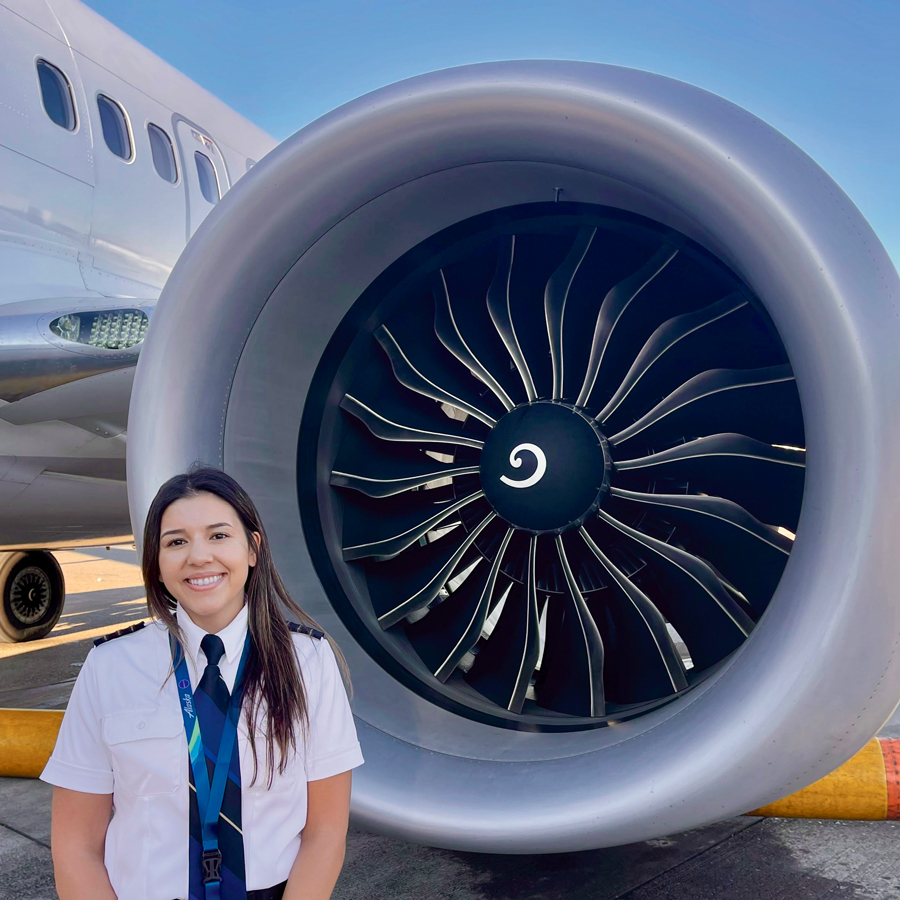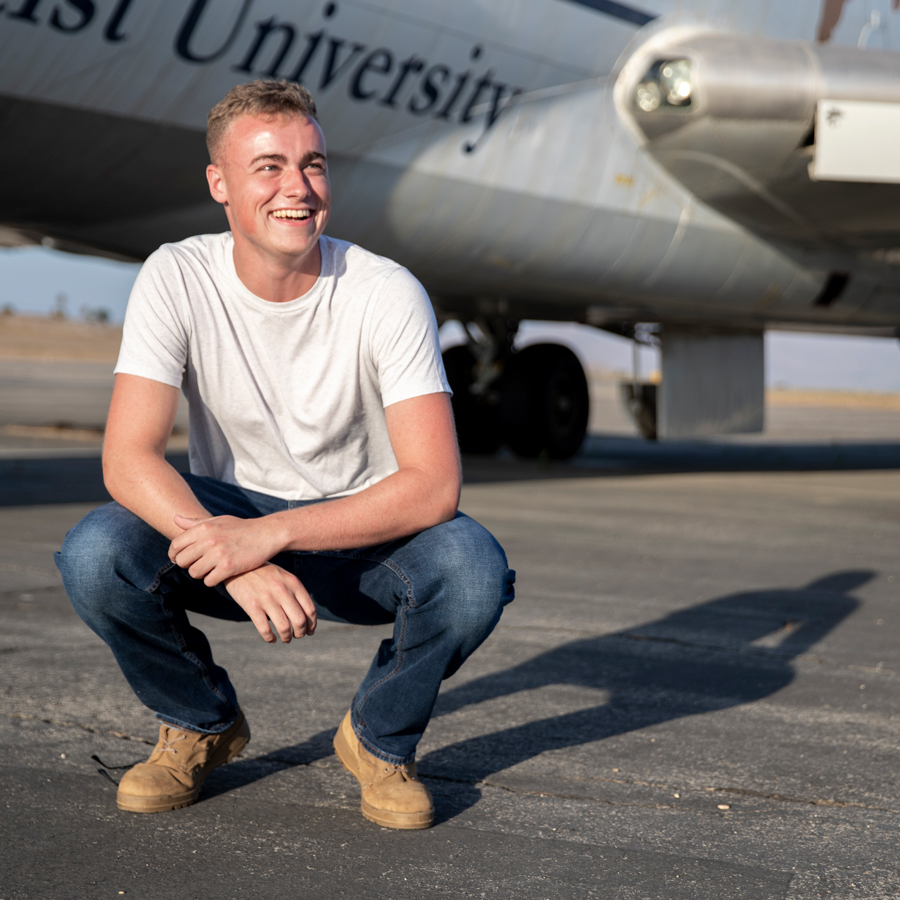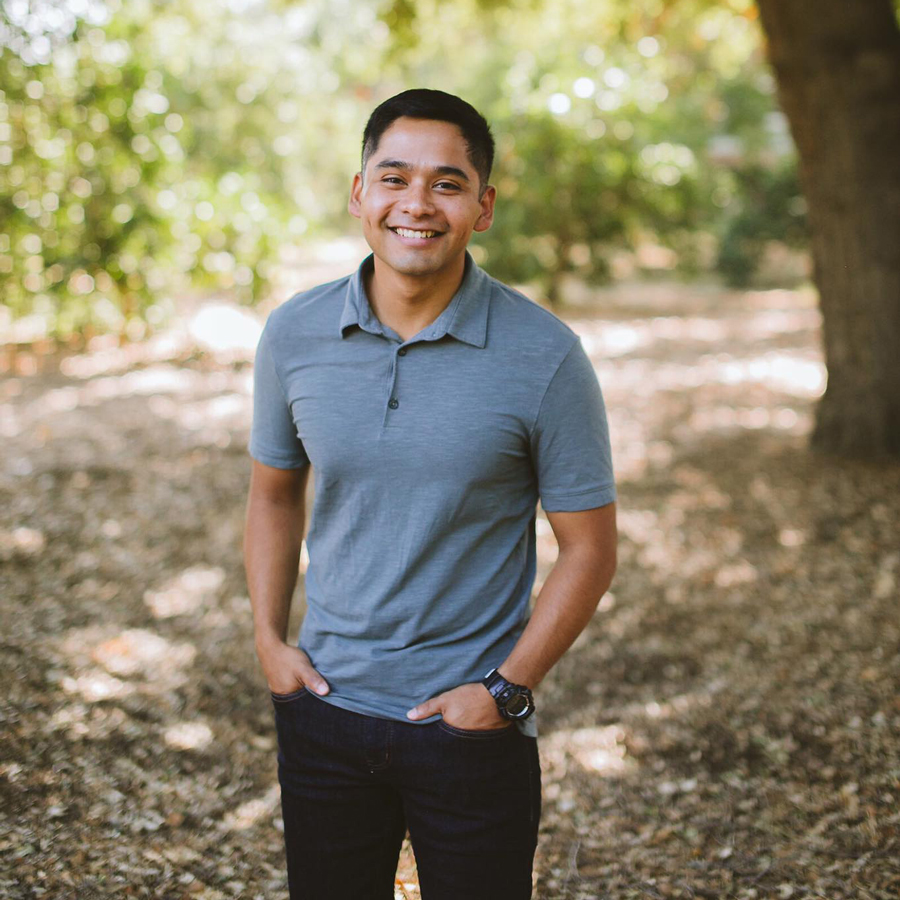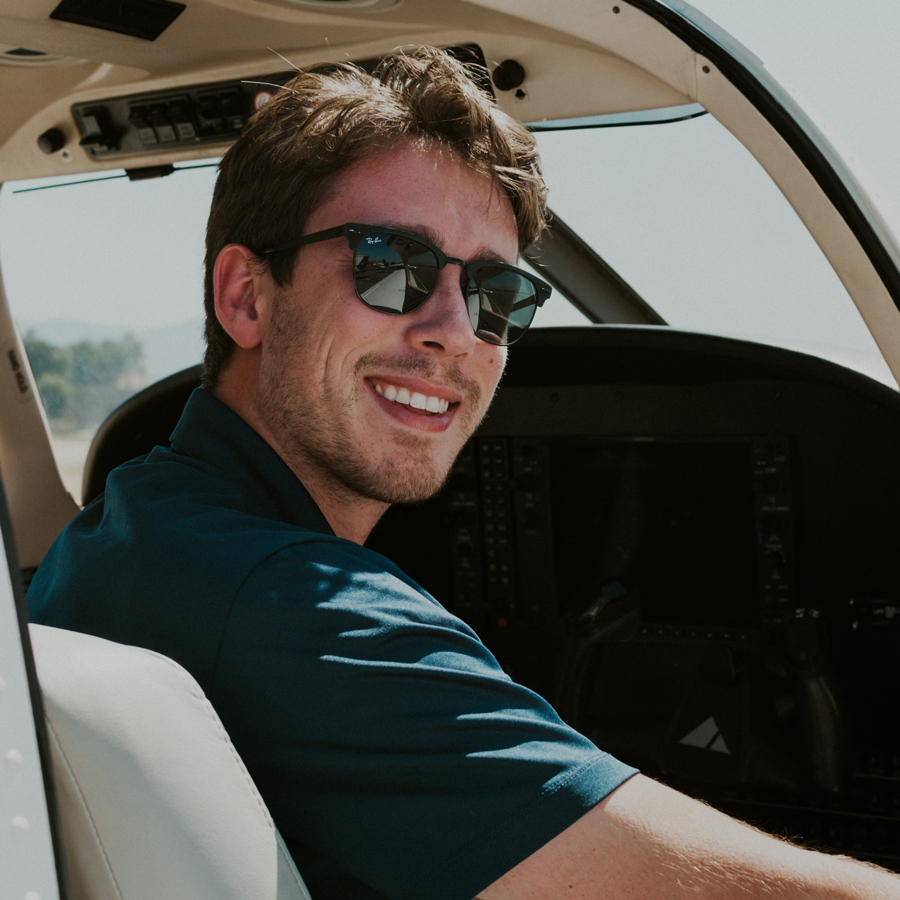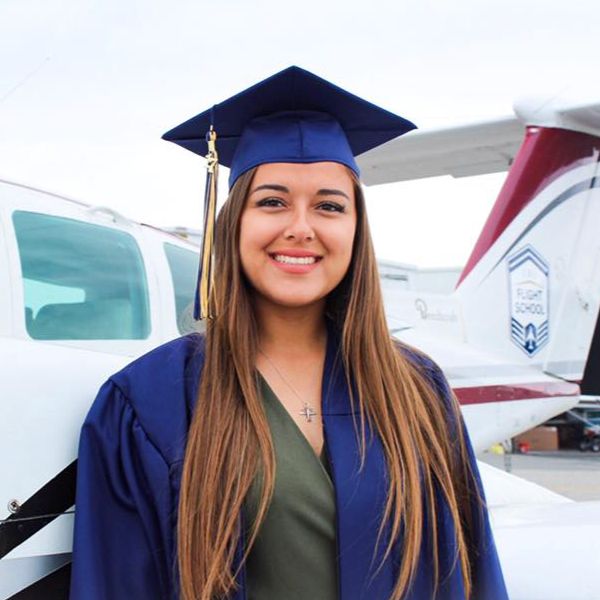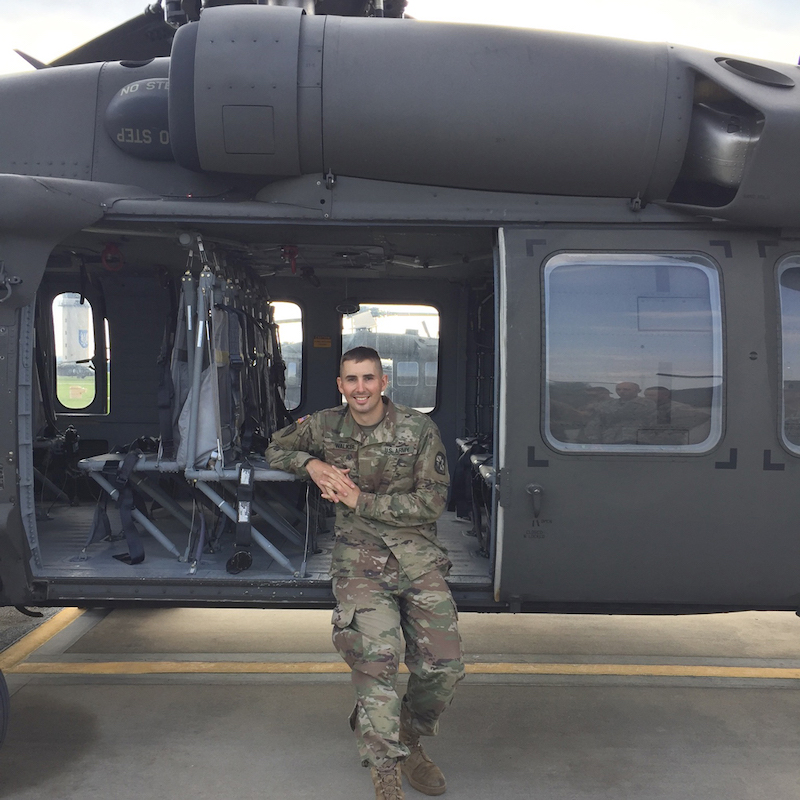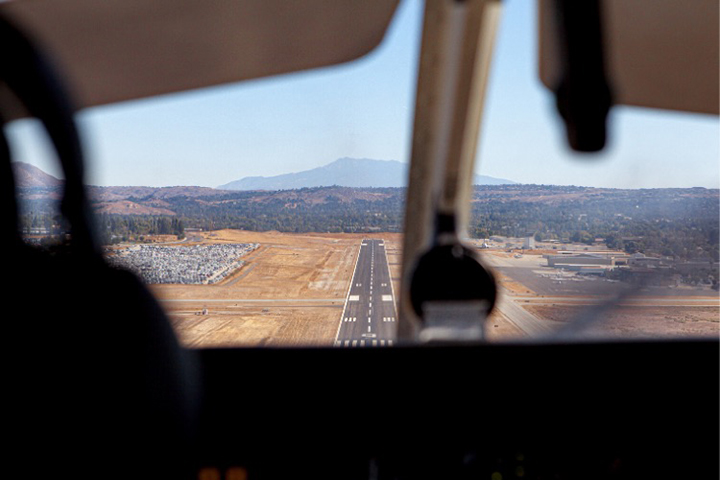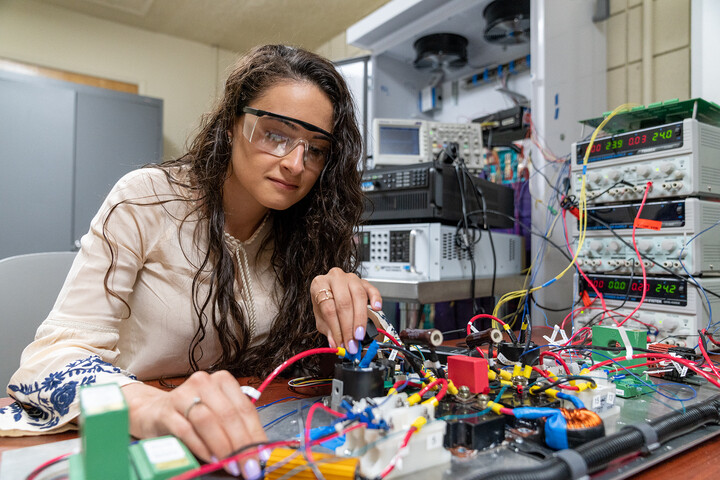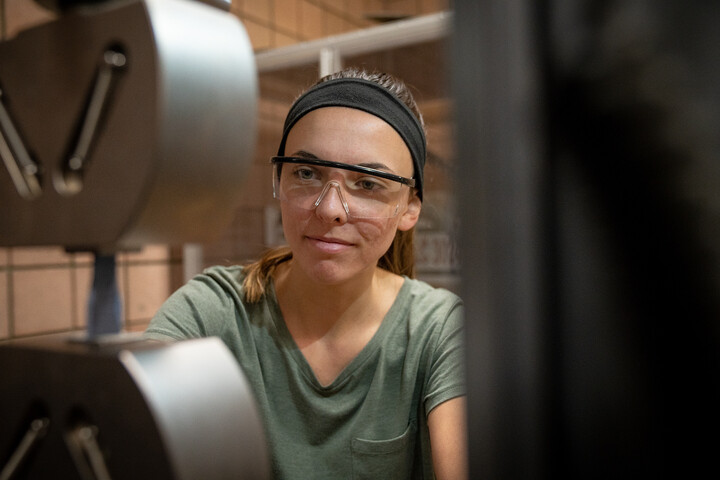Aviation Flight, BS
For many, flying is just a dream, but CBU can help make it a career. Students who have no prior flight experience can graduate from CBU's aviation flight program with the skills to be a pilot.
Program Intro
All flight training is conducted in-house by CBU using our own flight instructors and fleet of university-owned aircraft. In addition to the flight training and ground courses, students develop an in-depth knowledge of meteorology, navigational aids, aircraft systems and crew resource management. In essence, they learn everything they need to function as a pilot.
Facts & Stats
Students graduate with 250 flight hours, on average.
Why Study Aviation Flight at CBU?
Fly hundreds of hours
Generally, students can expect to graduate from CBU’s aviation flight program as a professional pilot with around 250–300 total hours of flight time. Flight training costs are in addition to CBU tuition and fees, but scholarships are sometimes available. In fall 2017, we gave $50,000 in aviation scholarships.
Study at an airport
We currently have a brand-new fleet of Piper aircraft, a 9,000 square-foot Flight Operations Center with classrooms, flight planning room, flight simulators, full kitchen and student lounge. Riverside Municipal Airport offers a safe flight training environment, with two paved runways, and is less than three miles from the CBU campus.
Become a pilot
Partnerships with regional airlines have allowed us to form the airline bridge program, which provides students with guaranteed interviews and potential conditional job offers prior to graduation. Graduates of the aviation flight major will have the knowledge and skills to obtain the certifications and licenses they need to fly single-engine and multi-engine aircraft for hire. Some of our alumni have gone on to jobs at the Long Beach Airport, the FAA, and as flight instructors in CBU’s own Flight School. Often, graduates teach flight for several years while they build hours to earn their ATP.
What You'll Learn
Students in CBU's aviation flight bachelor's program will learn to:
- Apply mathematics, science, and applied sciences to aviation-related disciplines.
- Analyze and interpret data.
- Work effectively on multidisciplinary and diverse teams.
- Make professional and ethical decisions.
- Communicate effectively, using both written and oral communication skills.
- Engage in and recognize the need for lifelong learning.
- Assess contemporary issues.
- Use the techniques, skills, and modern technology necessary for professional practice.
- Assess the national and international aviation environment.
- Apply pertinent knowledge in identifying and solving problems.
- Apply knowledge of business sustainability to aviation issues.
Program Details
FLT 119: Instrument Pilot Ground
An in-depth study of aircraft instruments, preflight and aircraft systems, navigation, holding, approaches, emergencies, and weather reports and forecasts.
FLT 326: Human Factors
A review of the psychological human factors that affect aviation, including individual and organizational factors, and technology-induced errors.
FLT 328: Aircraft Systems
An in-depth study of aircraft systems, including engine, fuel, electric, hydraulic, pneumatic, flight control, and computer systems and displays.
- Commercial Concentration
- Military Concentration
- Missionary Concentration
- Unmanned Aerial Systems Concentration
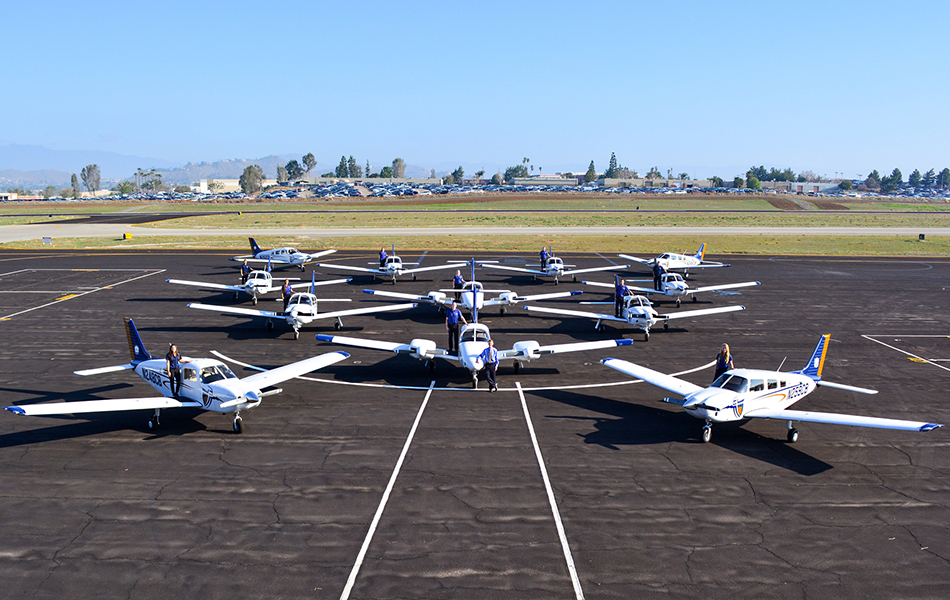
Student Opportunities: Flight Operations Center
CBU's Flight Operations Center is a 9,000 square-foot facility located at the Riverside Municipal Airport, containing classrooms, a flight planning room, flight simulators, full kitchen, student lounge, and maintenance and dispatch offices. Additionally, CBU has a brand-new fleet of Piper aircraft, allowing us to provide high-quality training in the most advanced glass-cockpit general aviation aircraft.
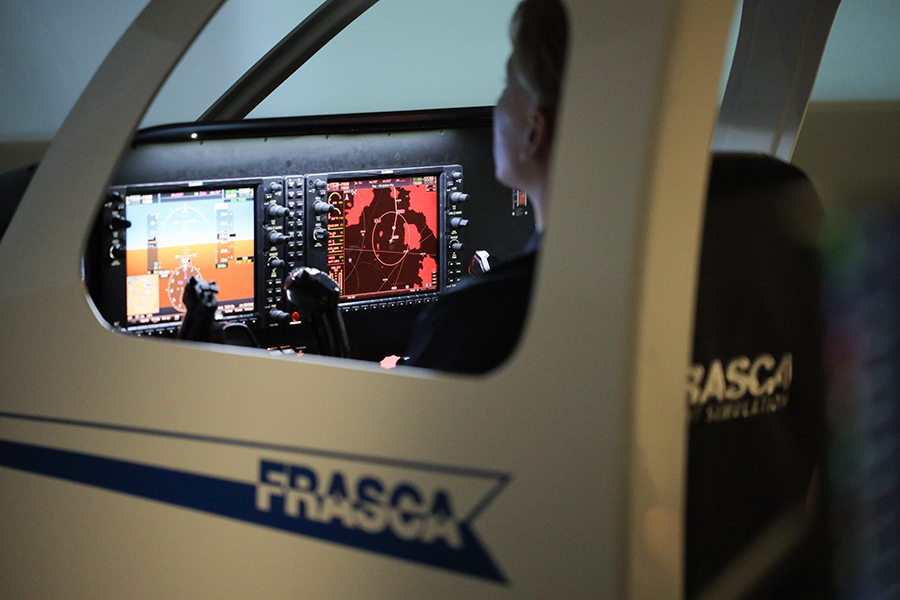
Student Opportunities: Flight Simulator
Students in CBU's aviation programs will utilize two state-of-the-art FRASCA flight simulators in their training. CBU's simulators exactly emulate our Piper Archer aircraft and have a 6-foot-high, 210-degree screen to cover all peripheral vision. Use of simulation lowers overall flight training costs and provides many advantages, even allowing a certain number of flight hours to be logged.
Career Possibilities
The Bureau of Labor Statistics predicts a 4 percent growth from 2022 to 2032 for airline and commercial pilot employment opportunities. Employment of airline and commercial pilots is projected to grow as the demand for air travel increases. About 16,800 openings for airline and commercial pilots are projected each year, on average, over the decade. Continued demand for private chartered flights is expected to sustain job growth for commercial pilots.
- 2022 Median Pay for Commercial and Airline Pilots: $148,900 per year
- Airline pilots typically need a bachelor’s degree as well as flight training with independent FAA-certified flight instructors.
- Congress has authorized graduates of certain university programs to go to the airlines with reduced aeronautical experience (1,000 flight hours instead of 1,500), recognizing the excellence in those programs. CBU is one of those universities, having received its authorization in August 2021. CBU graduates can begin working for an airline with 1,000 hours of flight time, rather than 1,500.
- At CBU, aviation flight majors graduate with a bachelor's degree as well as around 250 hours of flight training. To earn the additional 750 hours needed to become a pilot, many CBU alumni are hired as flight instructors.
- Partnerships with regional airlines have allowed us to form the airline bridge program, which provides students with guaranteed interviews and potential conditional job offers prior to graduation.
Related Programs
Next Steps
Join our community. At CBU, you’ll be challenged to become an individual whose skills, integrity, and sense of purpose glorify God and distinguish you in the world.

